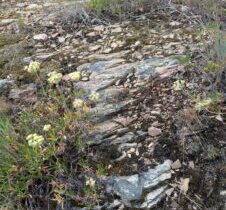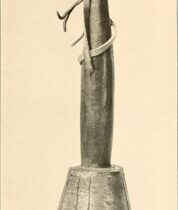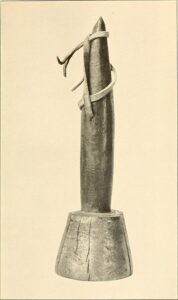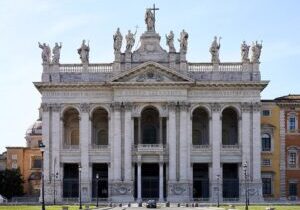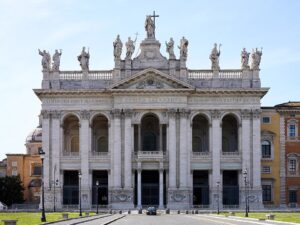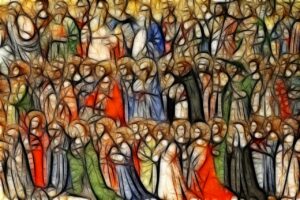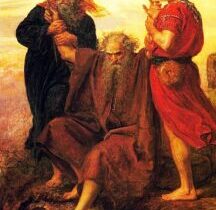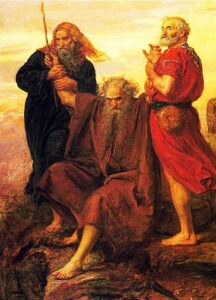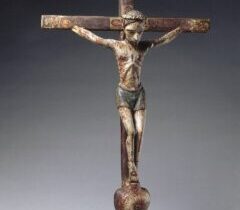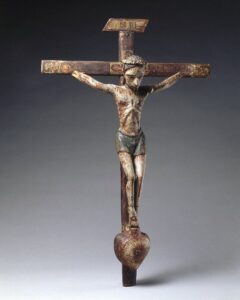Naphtali and Zebulun – Peoples Crushed and Hope Reborn
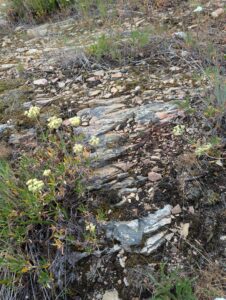 Times of upheaval and turmoil come all too frequently in human history. Tribes or nations move from place to place. Ambitious, greedy rulers seek even more territory and riches. Peoples are crushed as others invade and take their lands. Yet somehow, hope is reborn again and again. Naphtali and Zebulun are only two of the lands in which this has happened. Those who have taken over the lands of others are themselves defeated and replaced, sometimes by descendants of those originally defeated, other times by people moving in from other lands.
Times of upheaval and turmoil come all too frequently in human history. Tribes or nations move from place to place. Ambitious, greedy rulers seek even more territory and riches. Peoples are crushed as others invade and take their lands. Yet somehow, hope is reborn again and again. Naphtali and Zebulun are only two of the lands in which this has happened. Those who have taken over the lands of others are themselves defeated and replaced, sometimes by descendants of those originally defeated, other times by people moving in from other lands.
The prophet Isaiah lived during one of those times. Originally, the land into which the Hebrews moved when they returned from Egypt was divided among the 12 tribes descended from Jacob. The tribes of Naphtali and Zebulun lived in lands in the north, an area west of the Jordan River. They and the rest of the tribes in the northern part of Palestine (known then as Israel) were conquered by the Assyrians after many years of fighting. The residents of those lands were sent into exile in other lands and Assyria took over. The people ceased to worship the God of Abraham, Isaac and Jacob and instead worshiped the gods of Assyria. It became known as the District of the Gentiles.
The lands in the south were known as Judah. Their king, Ahaz, refused to help Israel and the Syrians against the Assyrians. This didn’t stop the eventual invasion of Assyria into their lands, but it held it off for a while.
Isaiah speaks of the lands of the north having been “degraded” or abandoned by the Lord when they were conquered. However, the Lord would come to the rescue and hope would be reborn. “The people who walked in darkness have seen a great light,” as the Lord smashes the power of Assyria through the power of other nations. (Is 8:23—9:3)
This rebirth of the lands of the north, which came to be known as Galilee, had come to pass long before the coming of Jesus. The connection with the southern part of the country had been reestablished. However, the equality in status of those from Galilee and those from the south was not an absolute given. The fact that Jesus was from Nazareth did not automatically give him status as a person whose ideas were worth hearing. The Messiah was to come from the line of David, rooted in Bethlehem in Judea, the lands of the south.
John the Baptist was from the south and his ministry was at the southern end of the Jordan River, closer to Jericho. Jesus and others traveled there to see and hear the prophet. After his baptism, Jesus went into the wilderness for 40 days to pray and make sense of all he had experienced. During that time, John was arrested and imprisoned by King Herod. Emerging from the desert, Jesus heard the news and returned to Galilee. However, he did not remain in small town Nazareth where he had lived and worked. He moved to the big city, Capernaum, on the banks of the Sea of Galilee. There he began telling all he met that the kingdom of heaven is near.
St. Matthew links the beginning of Jesus’ ministry in Galilee to the prophecy of Isaiah, noting that when Jesus moved from Nazareth to Capernaum, it was in fulfillment of Isaiah’s prophecy – “Land of Zebulun and land of Naphtali, the way to the sea, beyond the Jordan, Galilee of the Gentiles, the people who sit in darkness have seen a great light, on those dwelling in a land overshadowed by death light has arisen.” With these words, he introduces the active ministry of Jesus. “Jesus began to preach and say, ‘Repent, for the kingdom of heaven is at hand.’”
Yet the mission of preaching the kingdom is not limited to one person. If only one man is saying anything, and no one is paying attention or asking to hear more, we humans tend to disregard what is being said. If it’s important, the dream must be shared by others too.
As Jesus walked along the shore, he saw two men working there, casting their fishing nets into the sea. He called to them, “Come after me, and I will make you fishers of men.” Amazingly, they left their boat and nets at the shore and walked away with him. Then he saw two others fishing in a boat with their father. He called them too and they immediately left their boat and father and walked away with Jesus. No hesitation. It was a powerful and compelling call.
The lands of Zebulun and Naphtali were hearing a new voice and the beginning of a new age – the coming of the kingdom of heaven. Jesus “went around all of Galilee, teaching in their synagogues, proclaiming the gospel of the kingdom, and curing every disease and illness among the people.” This renewal and preaching continued for most of the three years of his active ministry. (Mt 4:12-23)
It wasn’t the well-educated, the wealthy, the powerful, the famous who followed Jesus. With few exceptions, it wasn’t they to whom he spoke. They weren’t the ones who benefited from his healing touch. In fact, they were the ones most suspicious of him. It was the poor, the ill, the handicapped, the powerless, who thronged to him. These were the ones he described as entering the kingdom first, because they relied first on God for their help.
In a similar way, we too are called to follow the example and leadership of Jesus. World conquest, is not to be our goal. Domination of other lands is not a sign of the kingdom. Taking control of natural resources, particularly of those in other lands, is not high on the list of things for followers of Jesus to be doing as part of living the coming of the Kingdom of God.
Who are the ones we are to serve? Who are the ones we are to welcome? Who are the ones whose needs are of greatest concern to the Father? If Jesus were walking physically among us today, where would we find him?
These are the questions we must ask in our lives, especially as powerful men and women work to take control of more and more lands, toss out those who have come seeking a new start in a safe place, and put their individual wishes and desires above concern for the common good.
The situation in Corinth which St. Paul addressed first in his letter is somewhat analogous to ours today. In that case, it was a question of which apostle’s preaching had been responsible for the birth in faith of an individual. Loyalty to that particular apostle and the particular set of memories shared with new converts was dividing the community. Paul reminds all that our baptism does not tie us to any particular preacher. Our baptism is into the life of Christ, including the witness of his cross and resurrection. Wisdom or fancy words are not the key. What matters is how we share in his ministry of service to all. That is where the gospel and its foolishness find their richness. (1 Cor 1:10-13, 17)
Do we choose whom we will welcome and protect? Do those coming to our shores have to pay large sums of money to the powerful to be welcome? Do we look first at skin color or language spoken before we see the human person? Do we assume everyone in a group is exactly the same as every other one?
How do we preach the gospel, the Good News of the Kingdom in our lives today?
This is the critical question for us as followers of Jesus in 2026. What is our response to the needs around us?
I pray that we will have the courage to speak truth to power, to encourage those with the authority to restrain others in their efforts to dominate, and to continue to work for the most vulnerable among us. Because that is where we will meet the Lord. Among those crushed, the Lord brings the gift of rebirth and hope. As his body here and now, it’s our time to provide the hands and heart needed.
Readings for the Third Sunday in Ordinary Time – Cycle A
Read More



